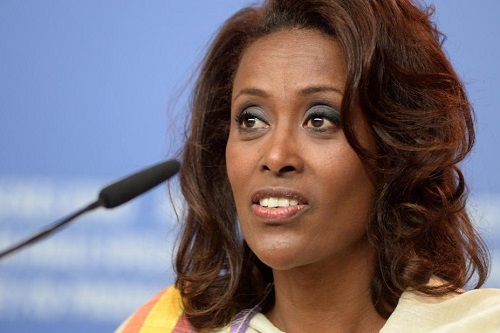AFP photo
By
Fanuel Lakew
ADDIS ABABA – Ensuring the independence of the judiciary and realizing institutional reform in the justice sector are the areas in which the federal supreme court is striving to achieve, so remarked the Ethiopian Federal Supreme Court President Meaza Ashenafi.
In an exclusive interview with Addis Zemen Daily here recently, the newly appointed president said that Ethiopia’s Supreme Court is working to redress the challenges in the justice sector in short and long terms identifying major areas that must be addressed.
The president also said that the problem in the justice sector has created a snowball effect. As a result of this, justice has not been served as expected. Thus, to ensure justice and rule of law, institutional capacity of law interpreters has to be reformed and strengthened. In this regard, the reform process needs to address the challenges in the courts to make independent judiciary which is free from law enforcement, executive and legislative organs.
She also said that the Supreme Court is working to strengthen the institutional capacity of courts and have confident judges and servants. To this end, the Supreme Court has identified major challenges in the sector in collaboration with partners. So there will be changes in a short and long term, she added.
After she took office, Meaza noted that questioners have been distributed to the 360 judges of supreme, higher and first instance courts. According to the research assessment, which has been conducted by the supreme court, most judges believe that there are unreasonable interference in the due process, unfair practices and corruption, shortage of capable judges and others.
Moreover, the judgment is limited to cases in which there is too much delay, Meaza added saying people don’t trust the court system. “However, this research is simple and not that much scientific. Even at the international level, Ethiopia has the lowest rank among sub-Saharan countries based on the Global Rule of Law Index.”
In this regard, there is a consensus among judges that there are hindrances in the sector as they were not free in the tribunal. “We have discussed with judges and pertinent bodies on how to take transformative measures that would tackle challenges in a sustainable manner,” the president said. Due to this, she hoped that judges will do their tasks without any pressure or influence from an external body.
In addition to this, Justice Organs Committee; which is chaired by the Federal Supreme Court and comprises Federal Police, Federal Attorney, Addis Ababa Police, Federal Prison Administration and others; is striving to solve the problems to some extent, ensure justice and get the trust of the people back.
Pertaining to the recent grand corruption and human rights violation case, she refrained to comment on it as the case is handled by the court. But she said that the responsibility of the court is to hold a free trial and ensure due process credible in accordance with the law.
Furthermore, she noted that positive dynamics would come to the justice sector if the ongoing reform was handled in a good manner. The president pointed out that she took office after holding a deliberative discussion with senior government officials on the matter that she will do the job without any interference. In addition to this, Meaza further noted that the prime minister and federal attorney general urged judges and all concerned bodies to serve the people freely and fairly. “Similarly, I gave courage and told every judge to do their job with the spirit of fairness.”
Moreover, she extended messages to journalists saying they have to specialize in certain areas to make well-articulated news and stories. She said that she observed most journalists have fewer understandings about the matter especially at courts. Investigative journalism has to be practised widely by the media. Otherwise, covering a particular event will not make them sensational in the sector. In this regard, the Supreme Court on its part will offer training to journalists regarding court reporting, Meaza also said.
Fanuel Lakew
Fanuel Lakew is a reporter at the Ethiopian Herald Newspaper of the Ethiopian Press Agency. He did his B.A. degree in Political Science and International Relations from Addis Ababa University in 2012. He also served as the Secretary-General of the Ethiopian Political Science and International Relations. He as well studied M.A. in Politics and International Relations at the Central University of Gujarat, India. He can be reached at [email protected]



No Comments Yet!
You can be first to comment this post!